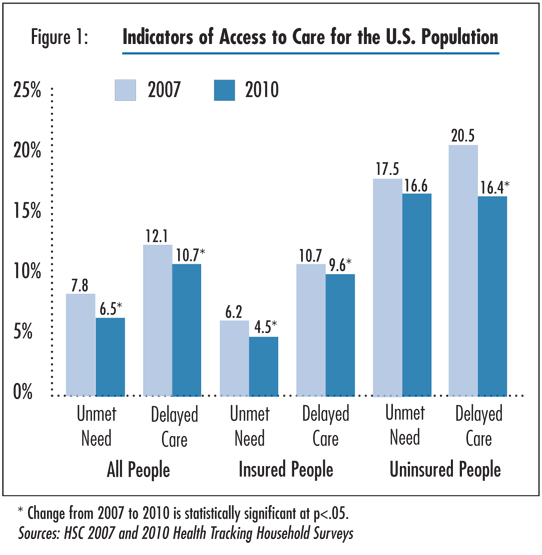Is the Recession Increasing Access to Health Care?
A study by the Center for Studying Health Change finds that fewer Americans are experiencing unmet health needs or delaying medical care. This is true for both those with and without health insurance. But why? The authors speculate that:
[It] was most likely because of an overall decline in demand for health services that loosened heath system capacity constraints for patients seeking care. During a time of economic hardship for many, patients may have become savvier and more cost conscious health care consumers by cutting back on care, which has been observed by some providers.
This study is hugely important. It is further evidence that non-price rationing is the most important barrier to care. (See previous post and David Henderson.) Authors’ prediction: non-price rationing will intensify under ObamaCare.



This is really interesting. And this is about the only site where I find non-price rationing even discussed.
Wow! This is a surprise.
I agree with the other commenters, this is a stunning result. Not sure quite what to make of it.
How does this jive with the RAND study that found that patients reduce health care consumption without consideration to the effectiveness of care and focus primarily on cost? How do patients characterize “need” and “demand”? Were the decreases in demand done in such a way as to not compromise the quality of care they received?
I think the idea is that docs now have excess capacity, so they’re more inclined to see patients on public programs. It’s a supply and demand issue, except that price isn’t the main determinant of equilibrium.